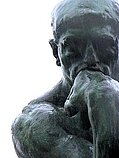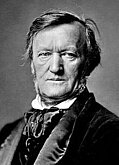Research Topics
Research fields
Research Field I: "Next Europe. Geopolitics and Future Scenarios of European Integration in the International System"
The research project takes up a surplus of ideas left over from Prof. Schröder's Dilthey Fellowship ("Political Economy of Social Europe", funded by the Fritz Thyssen Foundation and the Volkswagen Foundation 2010-2015). The aim is to investigate in an interdisciplinary perspective whether both the loss of momentum and the weak legitimacy of the "European project" since 2008 could justify a revised, more geopolitical raison d'être of the European integration process.
Previous research in Prof. Schröder's Dilthey Fellowship project focused solely on a socio-economic question: To what extent can (according to Europe2020 concept) the vision of a sustainable social-market-economic EU union of states develop corresponding political traction and cohesion? In the follow-up project, this perspective will be supplemented by reflections on regime and conflict options that may arise in the international system from the growing geopolitical significance of European integration. The overall aim is a scenario-analytical contribution to the philosophy of international relations (based on the construction and evaluation of "EU-topias").

Research field II: "What is philosophical research?"
Quid novi in philosophia? Whether and how "progress" in philosophy is possible in a similar way as in empirical sciences is highly controversial. On the one hand, it is obvious that history of philosophy from Thales to Rawls, Deleuze and Habermas is a process of development and accumulation of a broad spectrum of topics and methods, rich in fractures and changes. On the other hand, it does not seem clear whether or not this process is a rather linear or circular one. Can philosophical reflection á la longue really get substantially beyond certain basic questions of theory and practice? And, at the end oft he day, can there be more than just a range of paradigmatic alternative answers to these fundamental questions?
Diachronic and synchronic analyses of five key questions promise to shed light on this: (1) Under which conditions, (2) in which sense, (3) and to which extent can philosophical research be said to have "scientific form" - or is it strictly to be distinguished from "proper" scientific research - or at least from other kinds of "scientific" research? (3) To what extent, beyond merely historical and philological investigations, can philosophical research also start intuitively and creatively to generate knowledge? And finally (4): To what extent can philosophical research draw innovative power from its own structural resources and dynamics instead of solely reworking old topics from the philosophical tradition?
The research desideratum outlined above concerns and demands meta-philosophical basic research.

Research Field III: "Antihumanism, Transhumanism, Posthumanism: Anthropotechnologies and the Future oft he Subject"
This research project aims at a more intensive interdisciplinary exploration of both the background and the implications of questioning central assumptions of classical "subject philosophy".
The prelude to this emphatic criticism of "subject philosophy" is "antihumanism" as it was worked out in French philosophy from the 1940s to the 1960s. In its neo-Marxist version developed by thinkers such as Kojève, Althusser, and Balibar, "antihumanism" challenges the classical conception of man as the subject of his accomplishments. These thinkers emphasize the all-defining dependence of man's consciousness and practice either on the materialist substructure or on social precepts or, finally, on the relation to capital.
In its neostructuralist reformulation in Foucault and Barthes, partly also around Derrida’s theory of deconstruction, the concept of "antihumanism" adopts a different meaning. It now appears as a summary heading over debates on the "death of the subject". The context of origin of this type of "antihumanism" was formed mainly by two strands of discourse: (1) the psychoanalytic elucidation of the human being as decisively determined by the preconscious and the unconscious, and (2) the consideration that a structuralist dissolution of language and communication into an anonymous play of differences and referential contexts also erases the subject status of the human speaker position ("death of the author").
In the mid-1980s, the emergence of "human enhancement" projects brought up new perspectives on these debates. It started discussions about the extent to which prospects for optimizing human health, quality of life, and performance could legitimize the relativizability of human beings' conventional genetic and physical integrity ("transhumanism").
Since the turn of the millennium, the "transhumanism" debate has continued and intensified into the "posthumanism" discourse. This is about optimizing perspectives form human life extension. Philosophical as well as interdisciplinary research on chances and risks of these new anthropotechnical perspectives are desiderata especially in the border area of philosophy and theology.

Research Field IV: "Richard Wagner Reception in Recent Philosophy"
Wagner's musical and literary œuvre clearly draws from philosophical sources of inspiration (Feuerbach, Schopenhauer, Proudhon, Bakunin). By now, they are almost as well documented as Wagner's enormous influence on philosophers like Nietzsche, writers like Baudelaire, Mallarmé, and Th. Mann as well as on outstanding music aesthetes like Moos, Bekker, Westphal, Adorno, and Dahlhaus. Further advances in this field of research can be expected from the Wagner edition projects (Schriften und Briefe) at the University of Würzburg.
Among the largely new research topics is the Wagner reception by philosophical authors such as Valéry, Croce, Wittgenstein, Jankélévitch, Badiou, and Žižek. These research desiderata are taken up in an interdisciplinary research project with the aim of preparing a monograph.









